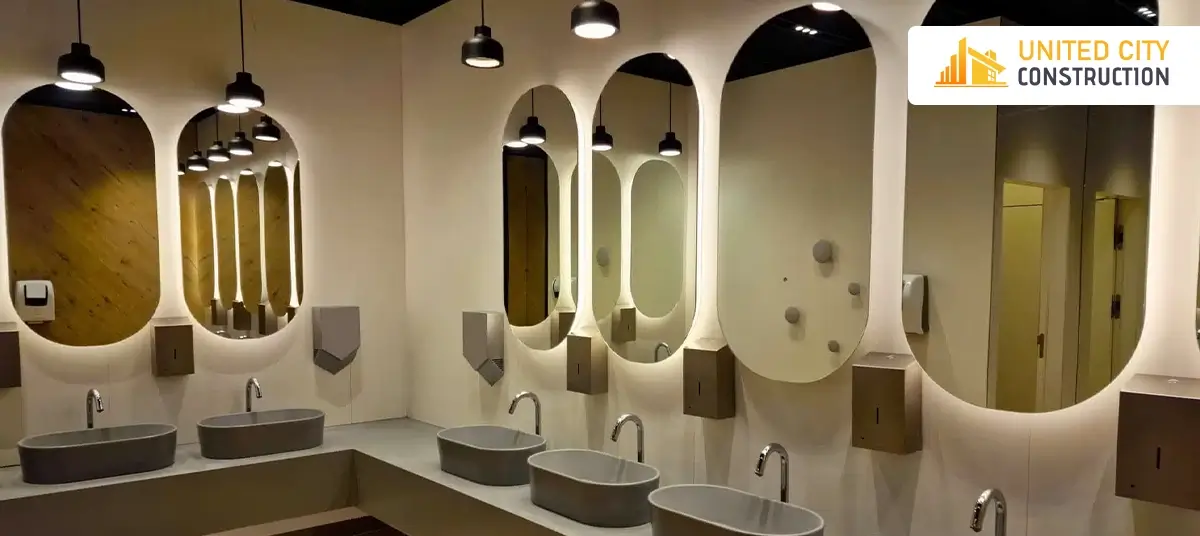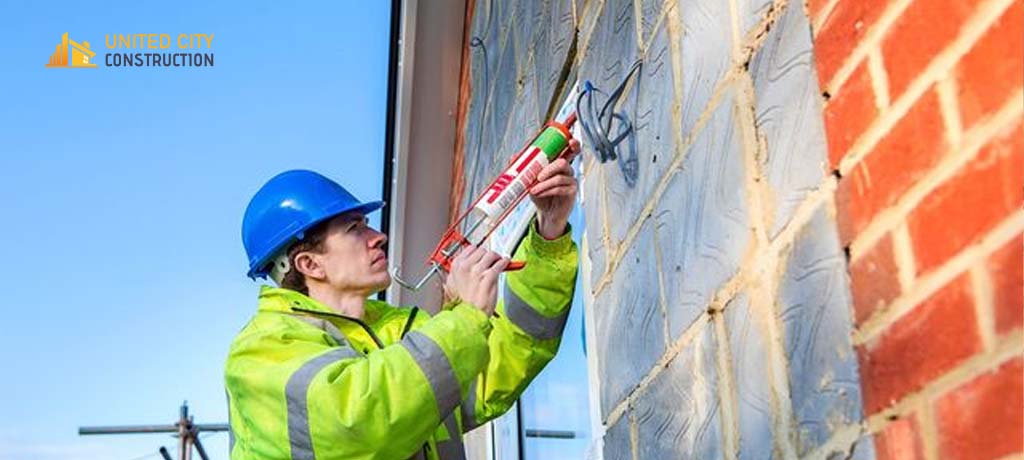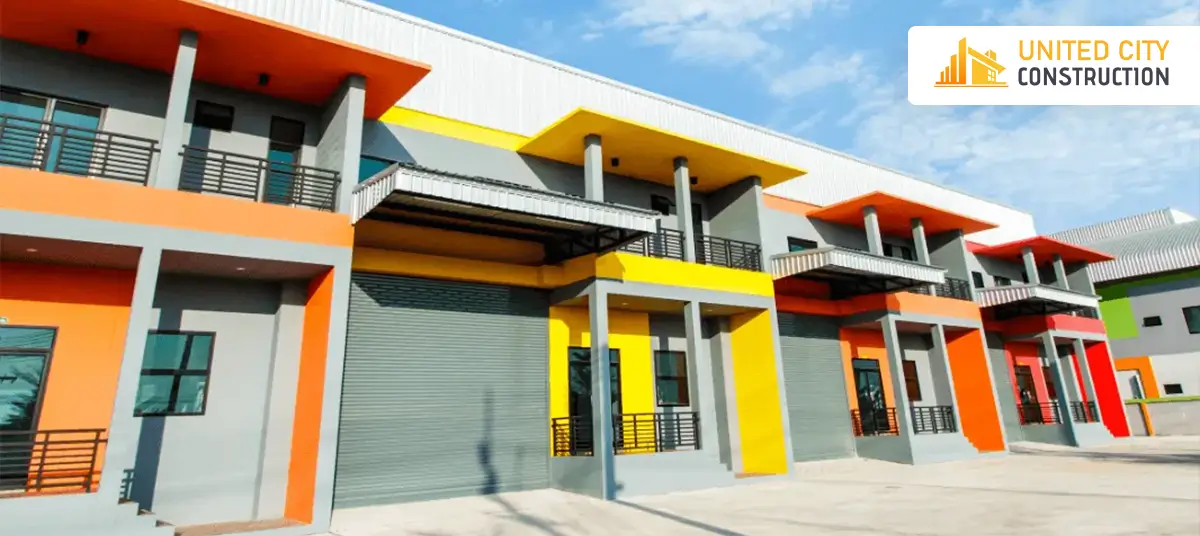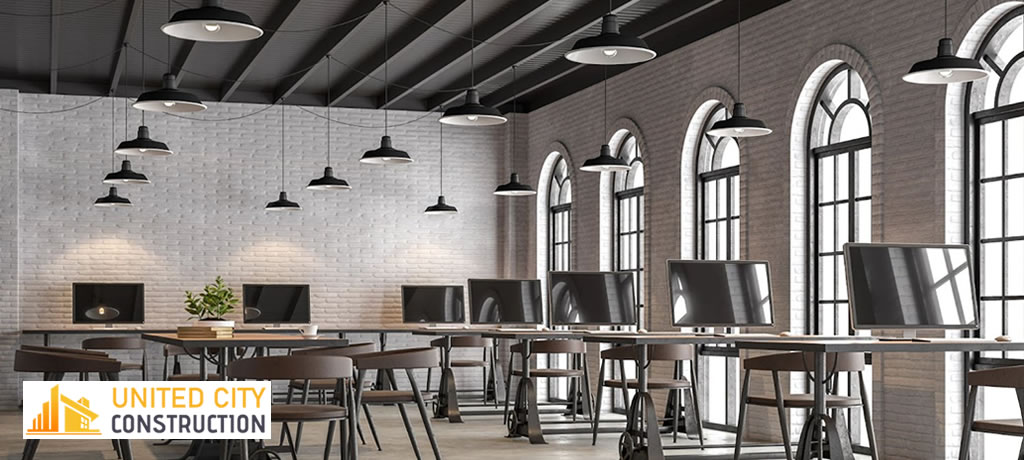Principles of a Commercial Kitchen Design
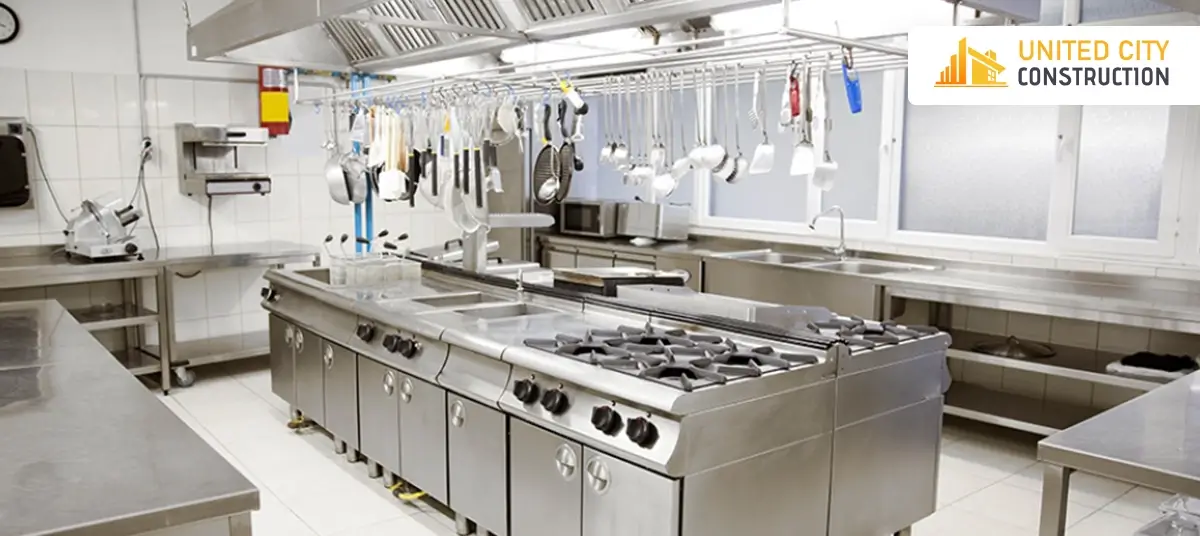
Designing a commercial kitchen is more than just arranging appliances and workstations; It's about creating a space that maximizes efficiency, ensures safety, and meets the business's unique needs. Whether you’re planning a kitchen renovation or starting a new kitchen construction project in Queens, understanding the principles of effective commercial kitchen design is crucial. In this blog post, we'll delve into the core principles that underpin a well-designed commercial kitchen. We'll explore how these principles translate into practice, the importance of working with an experienced commercial kitchen contractor, and how to make informed decisions for your kitchen renovation or construction project in Queens. By the end, you'll have a comprehensive understanding of what it takes to create a functional, safe, and efficient commercial kitchen that can withstand the demands of a busy environment.
Understanding the Basics of Commercial Kitchen Design
A commercial kitchen is a highly specialized space designed to support the preparation and cooking of food on a large scale. Unlike residential kitchens, commercial kitchens must accommodate multiple staff members working simultaneously, handle high volumes of food, and adhere to stringent health and safety standards. The design of a commercial kitchen directly impacts the efficiency, safety, and success of the food service operation it supports.
Key Components of a Commercial Kitchen
Layout and Workflow: A well-designed commercial kitchen layout ensures a smooth workflow, minimizing unnecessary movement and reducing the risk of accidents. The layout typically includes distinct zones for different activities such as food preparation, cooking, plating, and cleaning. The "work triangle" concept, which emphasizes the efficient arrangement of the sink, stove, and refrigerator, is often adapted for commercial kitchens to enhance workflow.
Equipment Needs: Commercial kitchens require specialized equipment to handle the demands of high-volume food production. This includes heavy-duty appliances such as commercial ovens, grills, and refrigerators, as well as smaller tools like mixers and slicers. The choice of equipment should be based on the specific needs of the menu and the volume of food being prepared.
Compliance with Health and Safety Regulations: Adhering to local health and safety regulations is crucial in commercial kitchen design. This includes ensuring proper ventilation, fire safety measures, and sanitation practices. Commercial kitchens must be designed to prevent cross-contamination, maintain food safety standards, and provide a safe working environment for staff.
Principles of Effective Commercial Kitchen Design
Designing a commercial kitchen is not only arranging appliances; it involves strategic planning to ensure efficiency, safety, and durability. Here, we will explore the core principles that are essential for effective commercial kitchen design.
Efficient Workflow and Space Utilization
The work triangle is a classic design principle that enhances kitchen efficiency by minimizing unnecessary movement. It involves placing the sink, stove, and refrigerator in a triangular layout to ensure a smooth workflow. In commercial kitchens, this concept is expanded to include multiple workstations and zones.
Creating specific zones for different kitchen activities (e.g., preparation, cooking, cleaning) helps streamline operations. Each zone should be equipped with the necessary tools and equipment to perform its designated tasks efficiently. For example, the prep zone should have ample counter space and access to knives and cutting boards, while the cooking zone should be near stoves, ovens, and grills.
Maximizing space utilization is crucial in commercial kitchens where every square foot matters. This can be achieved through smart storage solutions, such as shelving units, hanging racks, and under-counter storage. Efficient space utilization ensures that the kitchen remains organized and clutter-free, enhancing productivity.
Safety and Compliance
Adhering to local health codes and regulations is non-negotiable in commercial kitchen design. This includes ensuring proper food storage, handling, and sanitation practices. Kitchens must be designed to prevent cross-contamination and maintain high standards of cleanliness.
Proper ventilation is essential to maintain air quality and prevent the buildup of heat, smoke, and grease. Installing efficient ventilation systems helps keep the kitchen environment comfortable and safe for staff. Additionally, implementing fire safety measures, such as fire suppression systems and easily accessible fire extinguishers, is critical to protect both staff and property.
Durability and Maintenance
Commercial kitchens require durable materials that can withstand heavy use and frequent cleaning. Stainless steel is a popular choice for countertops, sinks, and appliances due to its durability, resistance to corrosion, and ease of maintenance. Floors should be made of slip-resistant, easy-to-clean materials such as quarry tile or commercial-grade vinyl.
Maintaining a clean kitchen is essential for food safety and efficiency. Designing the kitchen with easy cleaning in mind can significantly reduce maintenance time and effort. This includes installing coved corners, seamless countertops, and washable walls. Additionally, selecting equipment with removable parts and accessible components simplifies the cleaning process.
The Role of a Commercial Kitchen Contractor
Designing and building a commercial kitchen is a complex endeavor that requires specialized knowledge and skills. Engaging a professional commercial kitchen contractor can significantly influence the success of your project. This section will highlight the importance of hiring a professional contractor, tips for selecting the right contractor, and the benefits of working with a local contractor in Queens.
Importance of Hiring a Professional Contractor
Expertise and Experience
Commercial kitchen contractors possess the expertise and experience necessary to navigate the intricacies of kitchen design and construction. They are knowledgeable about the latest industry standards, efficient layout designs, and the best materials to use. Their experience allows them to anticipate potential issues and provide innovative solutions that ensure the kitchen operates smoothly.
Managing the Construction Process
A commercial kitchen contractor manages the entire construction process, from the initial design phase to the final installation and inspection. They coordinate with architects, designers, suppliers, and subcontractors to ensure the project progresses seamlessly. Effective project management minimizes disruptions, keeps the project on schedule, and ensures it stays within budget.
Ensuring Compliance and Safety
Compliance with local health and safety regulations is crucial in commercial kitchen design. Contractors ensure that your kitchen meets all legal requirements, passes necessary inspections, and incorporates safety features like proper ventilation and fire suppression systems. This reduces the risk of fines, delays, and potential safety hazards.
Tips for Selecting the Right Contractor
- Start by researching local contractors and asking for referrals from other business owners or industry professionals. Online reviews and testimonials can offer insights into a contractor's reputation and quality of work.
- Verify the contractor’s licenses, certifications, and insurance coverage. Ensuring they are properly credentialed protects you from liability and guarantees they meet industry standards.
- Look for contractors with extensive experience in projects similar to yours. Review their portfolio and ask for references to gauge their expertise and track record.
- Schedule interviews with potential contractors to discuss your project requirements, timelines, and budget. Assess their communication skills, responsiveness, and willingness to collaborate.
- Request detailed quotes from multiple contractors, including breakdowns of costs for materials, labor, and any additional services. Compare these quotes to ensure transparency and avoid unexpected expenses.
Conclusion
Designing and constructing a commercial kitchen is a significant investment that requires careful planning and expert execution. By understanding the principles of effective kitchen design and recognizing the importance of hiring a professional commercial kitchen contractor, you can ensure that your project is a success. From optimizing workflow and space utilization to ensuring safety and compliance, every detail matters in creating a kitchen that supports your business’s operational needs.
At United City Construction, we specialize in bringing your commercial kitchen vision to life. With years of experience in kitchen renovation and construction in Queens, our team is dedicated to delivering high-quality, efficient, and compliant kitchens tailored to your business’s needs. Contact us today for a consultation and take the first step towards creating the perfect commercial kitchen for your business.



